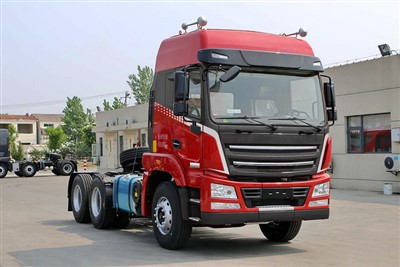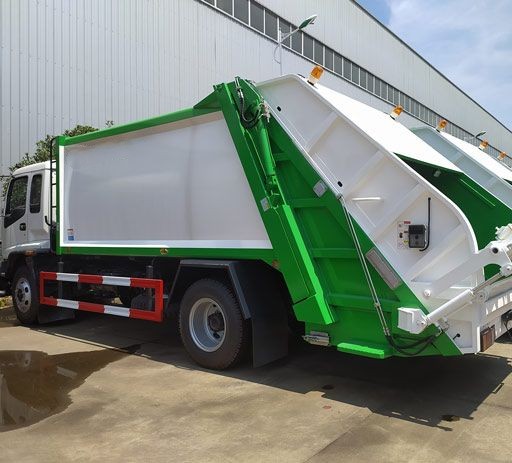Temperature Controlled Trucks: The Backbone of Modern Logistics

Introduction
In today’s fast-paced world, the safe and efficient transportation of goods is essential for businesses. This is especially true for products that are sensitive to temperature changes, such as pharmaceuticals, perishables, and certain chemicals. Temperature controlled trucks, often referred to as refrigerated trucks, play a pivotal role in maintaining the integrity of these products throughout the supply chain. This article explores the importance of temperature controlled trucks, how they work, their benefits, challenges, and best practices for their effective use in logistics.
Understanding Temperature Controlled Trucks
What are Temperature Controlled Trucks?
Temperature controlled trucks are specialized vehicles designed to transport goods that require precise temperature management. These trucks are equipped with refrigeration systems that can maintain a range of temperatures, ensuring that products remain viable throughout their journey.
Types of Temperature Controlled Trucks
Temperature controlled trucks come in various configurations and types to suit different logistics needs:
- Reefer Trucks: Standard refrigerated trucks that maintain a specific temperature range.
- Insulated Trucks: Trucks that rely heavily on insulation to minimize temperature fluctuations.
- Multi-Temperature Trucks: Trucks with separate compartments that can maintain different temperatures, ideal for mixed loads.
How Temperature Controlled Trucks Work
The Refrigeration Mechanism
At the heart of a temperature controlled truck is its refrigeration system. Most modern refrigerated trucks use a vapor-compression cycle, which includes:
- Compressor: Compresses refrigerant gas, raising its temperature and pressure.
- Condenser: Dissipates heat from the refrigerant, turning it into a liquid.
- Expansion Valve: Reduces the pressure of the refrigerant, allowing it to evaporate and cool.
- Evaporator: Absorbs heat from the truck’s interior, maintaining the desired temperature.
Temperature Control Systems
Modern temperature controlled trucks come equipped with advanced temperature control systems that provide real-time monitoring. These systems often include:
- Digital Temperature Displays: Show current temperature readings inside the cargo area.
- Alarms: Notify drivers of any temperature deviations.
- GPS Tracking: Provides live tracking of the vehicle and its environment.
The Importance of Temperature Controlled Transportation
Protecting Perishable Goods
Many products, such as food and pharmaceuticals, are highly sensitive to temperature changes. Maintaining a steady temperature during transport is crucial to preventing spoilage or loss of efficacy.
Compliance with Regulations
In many industries, there are strict regulations regarding the transport of temperature-sensitive goods. Using temperature controlled trucks helps companies comply with these regulations, avoiding legal penalties and product recalls.

Reducing Waste
By ensuring that temperature-sensitive products remain within their ideal temperature ranges, businesses reduce waste significantly. This not only saves money but also promotes sustainability by minimizing discarded goods.
Benefits of Utilizing Temperature Controlled Trucks
1. Enhanced Product Quality
Keeping products at their optimal temperature ensures they arrive in the best condition possible, enhancing customer satisfaction.
2. Improved Shelf Life

Temperature controlled transport extends the shelf life of perishable goods, allowing businesses to reach wider markets without compromising product integrity.
3. Competitive Advantage
Companies that invest in temperature controlled logistics gain a competitive edge by offering reliable delivery of sensitive products.
4. Versatility
Temperature controlled trucks can be utilized for a wide variety of goods, making them a versatile option in any logistics fleet.
Challenges in Temperature Controlled Transportation
1. High Operating Costs
The costs associated with operating temperature controlled trucks, including fuel, maintenance, and technology, can be significantly higher than standard vehicles.
2. Need for Specialized Training
Drivers and logistics personnel need training to manage temperature monitoring systems and understand the nuances of temperature-sensitive transport.
3. Risk of Mechanical Failures
Failures in refrigeration systems can lead to significant losses. Having back-up systems and regular maintenance is essential for preventing such issues.
Best Practices for Temperature Controlled Logistics
Regular Maintenance Checks
Conduct routine inspections and maintenance on refrigeration units to ensure they are functioning correctly.
Temperature Monitoring
Implement robust temperature monitoring systems to track conditions during transport continuously.
Proper Loading Techniques
Ensure that loads are properly packed to maximize insulation and airflow. This helps maintain temperatures and prevent hot spots.

Training for Personnel
Provide thorough training for drivers and warehouse staff focused on temperature controlled logistics and safe handling procedures.
Utilizing Data Analytics
Invest in software solutions that allow for data analysis on temperature management, helping to spot trends and areas for improvement.
Practical Examples of Temperature Controlled Truck Use
Example 1: Pharmaceutical Delivery
Pharmaceutical companies often use temperature controlled trucks to transport vaccines and medications that must remain within strict temperature ranges. For instance, certain vaccines require temperatures of 2°C to 8°C. This precise control during transport ensures their efficacy upon delivery to healthcare facilities.
Example 2: Grocery Supply Chains
Supermarkets rely on temperature controlled trucks to deliver fresh produce, dairy products, and frozen items. For example, a refrigerated truck delivering ice cream must maintain a consistent temperature of -20°C to prevent melting during transit.
Example 3: Floral Deliveries
The floral industry utilizes temperature controlled trucks to preserve the freshness of flowers during transport. Flowers are sensitive to heat and require cool environments, thereby extending their shelf life and ensuring customer satisfaction when they arrive.
Future Trends in Temperature Controlled Logistics
1. Advanced Refrigeration Technology
Emerging technologies such as solar-powered refrigeration and eco-friendly refrigerants are becoming increasingly popular in temperature controlled trucking.
2. IoT Integration
The Internet of Things (IoT) will play a significant role in temperature controlled logistics, allowing for real-time data tracking and predictive maintenance.
3. Autonomous Refrigerated Vehicles
With advancements in autonomous driving technology, we may soon see self-driving refrigerated trucks, enhancing efficiency and reducing labor costs.
4. Sustainable Practices
More companies are adopting sustainable practices by using energy-efficient vehicles and exploring alternative fuels for refrigerated transport.
Frequently Asked Questions (FAQ)
1. What is the ideal temperature for transporting perishables?
The ideal temperature varies depending on the product. Generally, fresh foods should be kept between 0°C to 4°C, while frozen goods should be at or below -18°C.
2. How often should temperature controlled trucks be serviced?
Temperature controlled trucks should be serviced regularly, at least every 3-6 months, to ensure the refrigeration system is functioning correctly.
3. What happens if there’s a temperature breach during transport?
If there’s a temperature breach, the products may become compromised and may not be safe for consumption or use, leading to potential losses and the need for product recalls.
4. Can temperature controlled trucks be used for dry goods?
While these trucks are primarily designed for perishable goods, they can also be used to transport dry goods if necessary, though it may not be cost-effective.
5. How do I choose a temperature controlled trucking provider?
Look for a provider with experience in transporting your specific goods, advanced temperature monitoring technology, and a reputation for reliability in the industry.
6. What regulations apply to temperature controlled transportation?
Various health and safety regulations, including those from the FDA and USDA in the U.S., dictate conditions for transporting food and pharmaceuticals. Companies must be familiar with all relevant regulations to maintain compliance.
